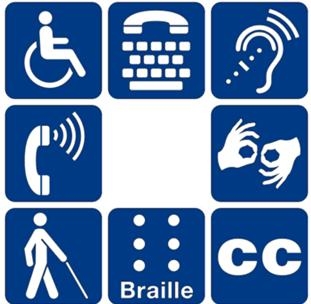Children’s contact with disabled improves their attitudes toward disability
Children develop better attitudes about people with disabilities if they have contact with them, according to research presented on August 29. Girls’ attitudes were “significantly more positive” than boys, reports lead researcher Megan MacMillan. The research, presented at the conference of the British Psychological Society, resulted from a survey of over 1,500 schoolchildren in England.
MacMillan’s findings suggest that including children with special needs and disabilities in mainstream classes has a positive effect on schoolchildren. “We have known for some time that integrating children with disabilities into the regular classroom can improve attitudes. What we have established here is just how much of a difference a greater presence in day-to-day life makes,” said MacMillan.
Increasing children’s direct contact with disabled people results in less anxiety for children and a more positive attitude towards disability. Even indirect contact results in better attitudes. Improving children’s attitudes about disability also helps people with disabilities. "Improving attitudes can have long lasting effects and can help children with disabilities to succeed," commented MacMillan.
The survey was designed to measure the children’s “attitudes, contact, empathy and anxiety towards disabled people.” According to MacMillan, “All the questions were aimed at generic disability – children were asked to consider physical disabilities, learning disabilities, hearing and sight impairments before starting the questionnaire.”
One thousand five hundred twenty children between the ages of 7 and 16 participated in the survey. All of the children attended public, mainstream schools. The participants were almost equally divided between boys and girls, although slightly more girls participated in the study. MacMillan or schoolteachers administered the surveys.
MacMillan is a Ph.D. student from the University of Exeter Medical School in England. She plans to continue her research in this area. MacMillan expects her findings to be published by the end of 2013.
Extensive information on inclusion is available from the National Dissemination Center for Children with Disabilities.
Sources:
Interview with Megan MacMillan (via email)
Children's attitude to disabled people
Suggested by the author
Protecting your children with autism from school bullies
iPads and iPods help kids with autism learn and communicate
Groups rally on Capitol Hill, pressure Senate to ratify Disability Treaty
ที่มา: http://www.examiner.com/article/children-s-contact-with-disabled-improves-their-attitudes-toward-disability?cid=rss (ขนาดไฟล์: 167)
วันที่โพสต์: 16/09/2556 เวลา 04:17:28 
![]()
![]()
แสดงความคิดเห็น
รายละเอียดกระทู้
http://www.examiner.com/article/children-s-contact-with-disabled-improves-their-attitudes-toward-disability?cid=rss US National Parks Service Children develop better attitudes about people with disabilities if they have contact with them, according to research presented on August 29. Girls’ attitudes were “significantly more positive” than boys, reports lead researcher Megan MacMillan. The research, presented at the conference of the British Psychological Society, resulted from a survey of over 1,500 schoolchildren in England. MacMillan’s findings suggest that including children with special needs and disabilities in mainstream classes has a positive effect on schoolchildren. “We have known for some time that integrating children with disabilities into the regular classroom can improve attitudes. What we have established here is just how much of a difference a greater presence in day-to-day life makes,” said MacMillan. Increasing children’s direct contact with disabled people results in less anxiety for children and a more positive attitude towards disability. Even indirect contact results in better attitudes. Improving children’s attitudes about disability also helps people with disabilities. "Improving attitudes can have long lasting effects and can help children with disabilities to succeed," commented MacMillan. The survey was designed to measure the children’s “attitudes, contact, empathy and anxiety towards disabled people.” According to MacMillan, “All the questions were aimed at generic disability – children were asked to consider physical disabilities, learning disabilities, hearing and sight impairments before starting the questionnaire.” Mary ConneelyBoston Special Needs Kids Examiner One thousand five hundred twenty children between the ages of 7 and 16 participated in the survey. All of the children attended public, mainstream schools. The participants were almost equally divided between boys and girls, although slightly more girls participated in the study. MacMillan or schoolteachers administered the surveys. MacMillan is a Ph.D. student from the University of Exeter Medical School in England. She plans to continue her research in this area. MacMillan expects her findings to be published by the end of 2013. Extensive information on inclusion is available from the National Dissemination Center for Children with Disabilities. Sources: Interview with Megan MacMillan (via email) Children's attitude to disabled people Suggested by the author Protecting your children with autism from school bullies iPads and iPods help kids with autism learn and communicate Groups rally on Capitol Hill, pressure Senate to ratify Disability Treaty
จัดฟอร์แม็ตข้อความและมัลติมีเดีย
รายละเอียดการใส่ ลิงค์ รูปภาพ วิดีโอ เพลง (Soundcloud)



